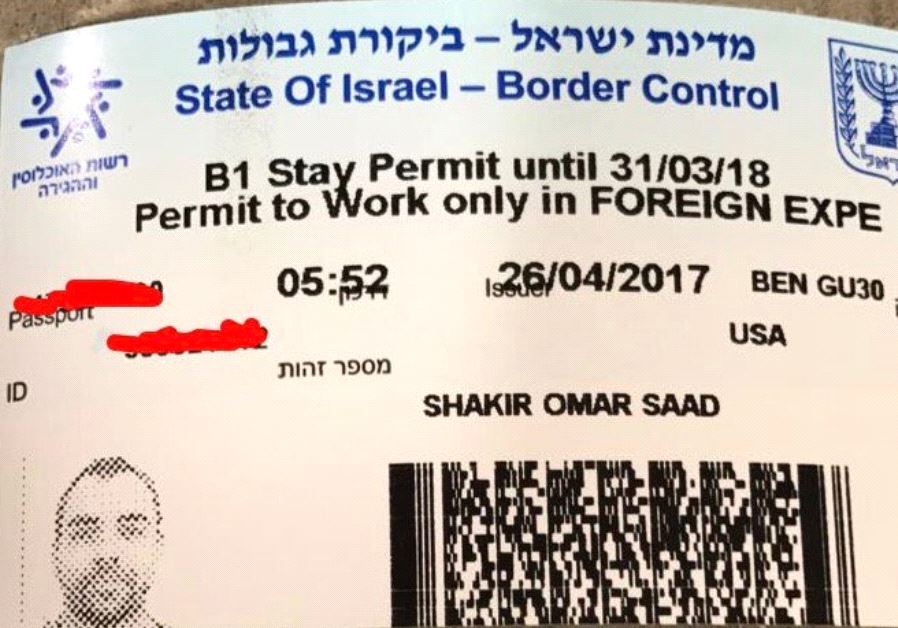Court reverses itself, blocks deportation of HRW representative
Last week, the same court denied Shakir's request to block an Interior Ministry order for him to leave Israel by this Thursday or be forcibly deported
 Work permit granted by Israel to Human Rights Watch official Omar Shakir, April 26, 2017(photo credit: TWITTER/OMAR SHAKIR)Updated:
Work permit granted by Israel to Human Rights Watch official Omar Shakir, April 26, 2017(photo credit: TWITTER/OMAR SHAKIR)Updated: